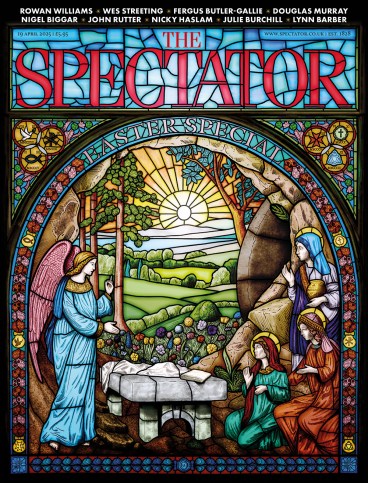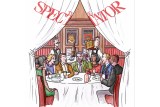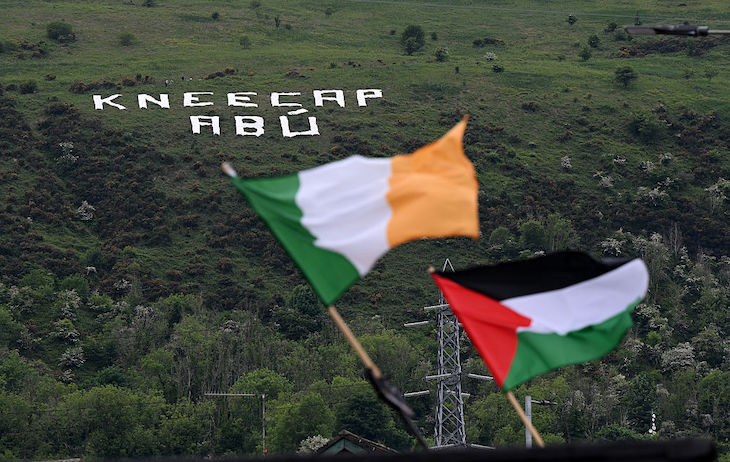
Given that TV cameras aren’t allowed to film British criminal trials, Channel 4’s new documentary series Barristers: Fighting for Justice is a courtroom drama without the courtroom. As for the drama bit, the programme does its excitable and occasionally successful best – but isn’t always backed up by its own participants, who on the whole are a serious and disappointingly discreet bunch. All of them, you imagine, would have plenty of cracking tales to tell after a few drinks. As things stand, however, they stick firmly to no-shit-Sherlock generalisations. ‘What I do is present the defence case on behalf of my client,’ said one in Tuesday’s episode. ‘It’s very important that innocent people aren’t convicted,’ argued another.
Leading the way was Leon-Nathan Lynch, whose client here had been charged with carjacking a Mercedes at knifepoint, having got into the back seat when it stopped in traffic. The client’s own story, delivered in a voiceover, didn’t sound terribly promising to me. He was, he told us, brought up in a church family and had gone to private school. Unfortunately, he’d ‘ended up going the wrong way’ – more specifically by spending most of his life in prison after committing loads of crimes. But not, he insisted, in this case – because the carjacking had been carried out at the request of the owner, who wanted the insurance. ‘I’ve gone from doing someone a favour to being the bad guy,’ the client lamented.
Faced with this, Leon was surprisingly bullish about his chances of courtroom victory. His spirts rose further when he discovered that this particular model of Merc automatically locks when stationary – and even if it hadn’t, why wouldn’t his client have used the passenger or driver’s door like any normal carjacker?
And from there, we had to rely on the narrator reporting what was happening in court – which she did rather patchily. Oddly, for example, there was no further mention of the automatic-locking evidence. Instead, to the sound of dramatic music and the sight of Leon looking pensive on a train, we heard that ‘The jury are considering their verdict!’, that ‘After four hours of deliberation the jury have made up their minds!’ and that ‘The jury has found Leon’s client guilty!’. We then watched Leon looking genuinely distressed as the man was driven off to spend five years and four months in prison.
All of which was fine as far it went – the problem being that it didn’t go any further. Of course Barristers couldn’t do anything about the restrictions on courtroom cameras. It might, though, have told us not just that Leon had gone from a childhood on an east-London estate to a prestigious job in the Temple, but how he did it. The same lack of backstories for the other lawyers going about their sober, largely unfilmable business also added to the general underwhelming effect.
All in all, by the end of the episode you felt that these were the type of people who you’d certainly want to have defending you in court – but not necessarily entertaining you on television.
Rebuilding Notre-Dame has been a suitably slow-motion series about a painstaking process, with episode one in 2020, episode two in 2022 and episode three, ‘The Last Chapter’, on Monday. Sadly, seeing as this was set in the present day, there wasn’t much chance for presenter Lucy Worsley to indulge in her beloved cosplay – although she did manage an Emily in Paris-style beret for the exterior scenes and a full boiler suit to go with the hard hat for the interior ones. When not saying the word ‘iconic’ a lot, she also kept the blizzard of stats coming: 1,000 cubic metres of stonework to be replaced, 2,400 oak trees brought in from across France, etc.
The barristers are, on the whole, a serious and disappointingly discreet bunch
But as you might expect, most of the programme was like The Repair Shop on a massive scale. Craftspeople of all kinds duly dazzled us with their recherché skills – although how these experts at medieval masonry, carvers of gargoyles and constructors of huge wooden church spires earn a living when, say, Notre-Dame hasn’t just burned down wasn’t entirely clear.
Meanwhile, the more we marvelled at them in action, the more tantalisingly mysterious Monday’s documentary left it as to how on earth people had done all this 900 years ago without the benefit of 21st-century cranes, lorries, cutting equipment and electronic measuring devices.
Equally mysterious was the BBC’s decision to broadcast the programme now. Like the old pro she is, Worsley presented the whole Notre-Dame restoration as that classic TV staple: the race against time. Could the work possibly be finished before the scheduled reopening in December 2024? And yet, not only did we know the answer, but the final credits rolled with her still thinking that it probably would be, rather than showing us that it had.









Comments